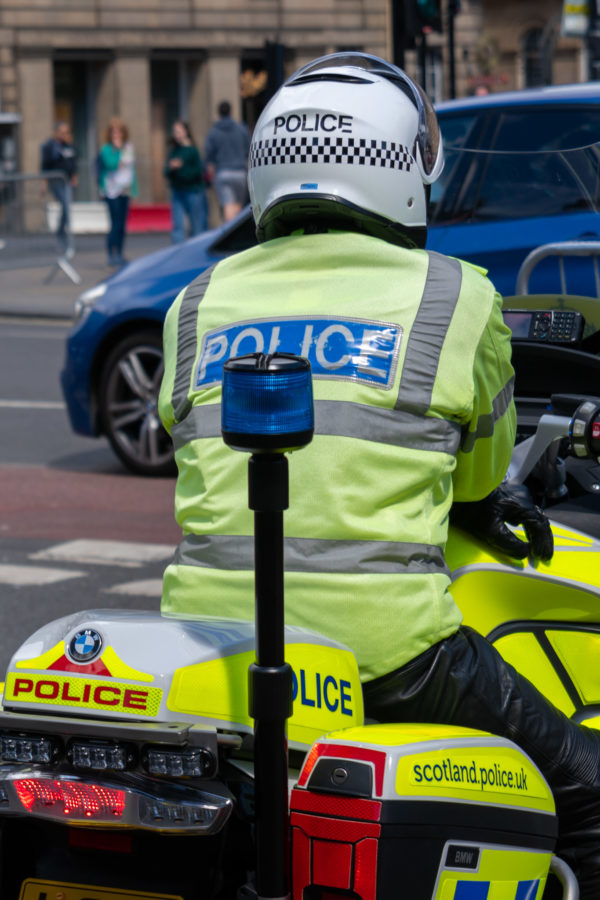Passenger deaths on the increase on Scotland’s roads
The number of passengers killed in horror smashes on Scotland’s roads has rocketed by 800%.
Police Scotland data shows that 18 car passengers died between April and December last year compared with just two the previous year showing a surge in the number of incidents claiming multiple lives.
There were six collisions resulting in multiple fatalities recorded during the nine month period compared with two in the same period the previous year.
In one weekend on Scotland’s roads in July, eight people died. Among the incidents was a single vehicle collision in Falkirk in which three men aged 21, 23 and 24 were killed, with the 20-year-old female driver taken to hospital
Data shows that overall 129 people died on the roads during the period, which is an increase of 2 deaths compared to the previous year. The worst numbers were recorded in May, June and July.
Road deaths and injuries have increased overall in each of the last four years despite The Scottish Government’s no road fatalities or serious injuries by 2050 target known as Vision Zero.

Scottish Conservative shadow transport minister, Sue Webber MSP, said: “My thoughts are with families grieving the loss of a loved one who died on Scotland’s roads.
“Brutal SNP cuts to dedicated road traffic officers and their failure to dual key roads across the country have no doubt contributed to road deaths rising. The SNP government are miles off meeting the target for zero deaths on Scotland’s roads by 2050.
“SNP ministers should show some common sense and fund more road traffic officers and finally fulfil their promise to upgrade dangerous roads and junctions across Scotland.”
According to a force report, the number of children killed on Scottish roads halved from four to two compared with the previous year, while the number of cyclists killed fell to one compared with five previously.
There were also decreases in the number of people seriously (148 fewer – down 9.8%) and slightly injured (470 fewer – down 16.3%).
Consistent rises in the death toll on Scotland’s roads overall means the journey to Vision Zero could prove unachievable as variables such as driver error, adverse weather, drink/drug driving, mechanical failure and tyre blow-outs mitigate against deaths and serious injuries being eliminated.
Edmund King, President of the AA motoring organisation, warned that while it was “commendable” to pursue a Vision Zero ambition for road deaths, it would be “difficult to make that vision a reality”.
He said: “Over the last 50 years road deaths have fallen when radical legislation has been introduced from the breathalyser to compulsory seat belts, to air bags, ABS brakes, Euro NCAP crash testing to assisted technologies. However, in the last few years casualties have broadly plateaued and on some measures increased.
“There are still some basic things that drivers and passengers are getting wrong. A report from The AA Trust showed that 43% of young passenger fatalities were unbelted.
“This is a stunning statistic as car occupants are twice as likely to die without a seatbelt. This suggests more education and effective enforcement is needed.”
Craig Naylor, HM Inspectorate of Constabulary in Scotland (HMICS), warned in a recent report that Police Scotland was detecting significantly less crime on the roads despite increasing numbers of deaths and injuries.
He said the number had been increasing every year since 2020 while noting a 63% drop in recorded offences since 2013.
Data shows officer numbers fell from 17,431 in March 2020 to 16,425 in October and, of that total, 3.5% were dedicated to road policing.
Mr Naylor said: “The recent increases in road casualties are complex and there is no single factor that has caused this trend.
“However, we are concerned that at a time when casualties are increasing, Police Scotland has decreased rather than increased its enforcement activity in this high-priority area.”
Police Scotland say they work in collaboration with partners such as Transport Scotland to improve road safety throughout the country in a bid to curb fatalities, running campaigns targeting speeding, wearing seatbelts and mobile phone use along with drink and drug driving.
Transport Secretary Fiona Hyslop’s National Speed Management Review Consultation, launched in November to examine the merits of lowering the national speed limit on single carriageways to 50mph, is due to conclude this month.
Chief Superintendent Hilary Sloan, Police Scotland’s Head of Road Policing, said: “Every death on our roads is tragic. We work tirelessly to fully investigate every fatal and serious road collision and provide support to the families of those involved, in conjunction with key partners like BRAKE.
“Road policing remains a priority for Police Scotland and we will continue to work very closely with a range of partners to improve road safety for all users.
“We all have a responsibility to use our roads safely. I urge every driver and road user to think about their behaviour on the road, be considerate towards others and help us make Scotland’s roads safe for everyone.”
